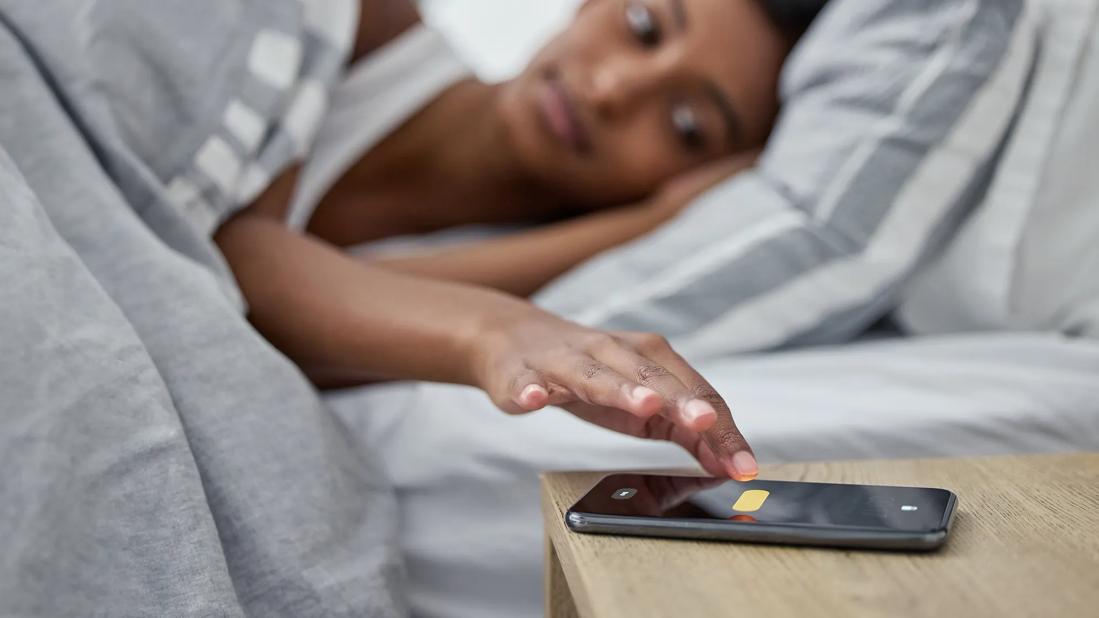Is Snoozing Your Alarm OK?
New research may shed some light on the debated topic

You stayed up a wee bit too late (again) binge-watching Yellowstone. Or perhaps your 18-month-old was crying at 2 a.m. … and again at 3:45 a.m. Whatever the reason, there are times when hitting that snooze button is awfully tempting.
There’s a good chance you’ve heard that the snooze button is bad for you and getting quality sleep.
But new research has been receiving a lot of attention for suggesting snoozing that alarm may not have that much of an impact on sleep quality.
So, is snoozing bad for you?
As with many situations in life, the answer isn’t so straightforward, says behavioral sleep medicine psychologist Alicia Roth, PhD. Dr. Roth discusses what this new research shows.
Is snoozing your alarm bad for you?
Dr. Roth says that a sleep routine that works for one person may not work as well for others.
So, what does this newer research show?
- The first study, which included more than 1,000 participants, found that snoozing is very common in young adults and people who are considered a late chronotype (a person who tends to fall asleep and wake later than others).
- A second study, which included 31 participants, shows that snoozing didn’t improve or worsen performance on cognitive tests.
She adds that it’s important to note that these are preliminary studies with a low sample size.
“That makes it hard to generalize what’s right for everyone,” Dr. Roth stresses. “What we suggest clinically in the real world is to try to minimize snoozing. The research may show that it doesn’t hurt people, but it certainly doesn’t help.”
Cons of hitting the snooze button
One thing to consider with using the snooze button is that it may not help your body get the restorative sleep you need.
“Much of the latter part of our sleep cycle is comprised of REM sleep, or dream sleep, which is a restorative sleep state,” Dr. Roth explains. “And so, if you’re hitting snooze, then you’re disrupting that REM sleep.”
We all have different arousal thresholds during different stages of sleep, and if we’re disrupting late-stage REM sleep, it can cause a “fight-or-flight” response, which increases our blood pressure and heartbeat.
In fact, many people mistakenly think they can operate on fewer than seven hours of sleep per night. But research shows that over time, insufficient sleep contributes to weight gain, cardiovascular risk and even death.
Another consideration? While some people can get conditioned to hitting snooze and actually get used to it, Dr. Roth says if a person feels the need to do so again and again, it could be an indicator that they’re either not getting enough sleep or they might have an underlying sleep disorder such as obstructive sleep apnea or chronic insomnia.
Bottom line? To snooze or not to snooze
When it comes to snoozing, healthcare professionals can’t make a blanket statement or offers absolute truths. For some of us, snoozing may work.
So, if you tend to hit snooze and feel fine, then Dr. Roth says there’s really no need to change your habits.
But if you find yourself hitting snooze every day and feel like you’re not getting quality sleep, she says then it’s time to look at your sleep habits.
“The evidence is clearer on the cons of snoozing, especially those for sleep who have sleep disorders,” emphasizes Dr. Roth.